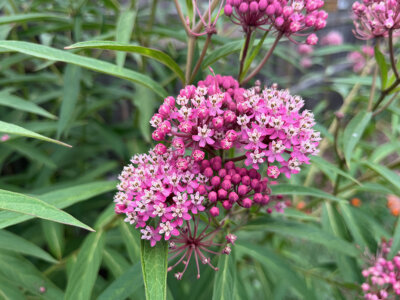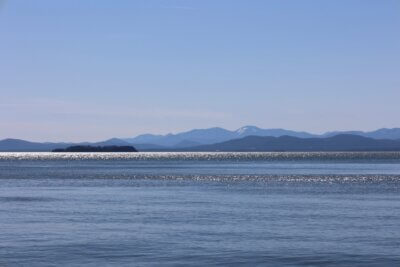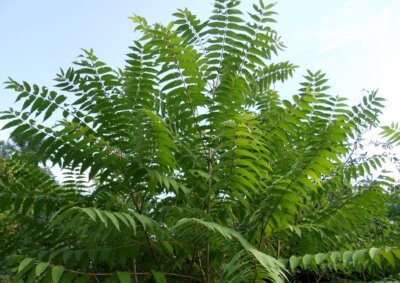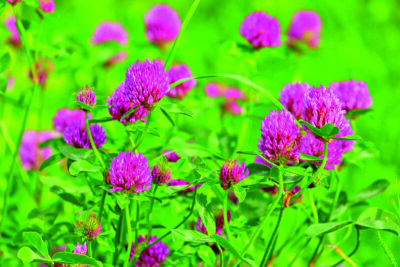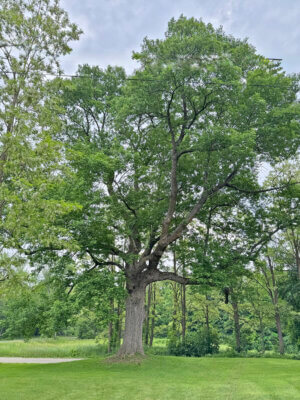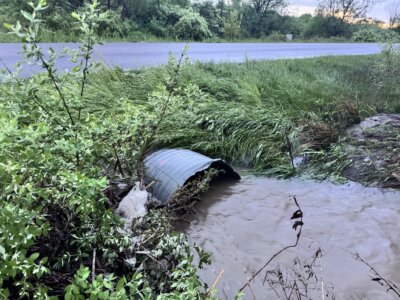Road Salt and Trees — An Unhealthy Mix
The question of whether we should increase the use of salt on our roads has periodically been a subject of debate in Charlotte. It was an item on the recent February 12 Selectboard agenda. The position of the last tree warden, Larry Hamilton, was to oppose the increased use of salt. I support this position for all the same reasons as previously put forth, summarized here:
Tree health
Salt is bad for tree health, particularly sugar maples. Road salt has been identified as a major factor in the decline of roadside sugar maples throughout their range. Notice the dearth of mature, healthy sugar maples along the roads in towns like Shelburne that have had a “bare road” salt policy. White pine and beech are also especially sensitive to salinity. Charlotte has made a significant investment in planting over 400 roadside trees, and we should protect this investment. Likewise the condition of naturally occurring roadside trees should be safeguarded. This is a fundamental mandate of Vermont’s tree wardens.
Corrosion
Salt causes corrosion of metal parts and accelerates the deterioration of cars, equipment and infrastructure, such as bridges.
Environmental impacts
There are a range of nontrivial environmental impacts resulting from road salt: increased salinity of waterways and lakes (Lake Champlain up 30 percent in the last 10 years); the release of sediment-bound heavy metals into the water column; toxic blooms of cyanobacteria; stripping the soil of calcium, magnesium and other components of healthy soil chemistry; saline contamination of water wells; damage to trout fisheries, etc.
Limited impact
Road salt is only effective within a certain temperature range. Below the low 20s or teens it will not thaw ice.
More state regulation anticipated
New Hampshire has begun regulating chloride (from road salt) levels and the Burlington Free Press reported that Vermont is headed in that direction (“Vermont struggles with low-salt diet—for roads,” October 23, 2017). Other nearby towns like South Burlington and Essex are taking measures to reduce salt. Essex has reduced salt use by 50 percent. As a town that prides itself on its conservation ethic, it is better for Charlotte to be ahead of the curve in this respect rather than bucking the trend.
Mandated increase not necessary
Until viable alternatives are available, some amount of salt is needed for public safety, and Road Commissioner Jr Lewis already has discretion to adjust the salt mix as he sees fit. Whether the salt mix is the correct is the subject of the current discussion, but there is some evidence to suggest that the current levels are adequate. For instance, Jessie Jackman of Jackman Fuels said that his drivers have reported no issues with Charlotte roads since the severe ice episode in 2014. In Jackman’s opinion the roads in Charlotte are “well maintained.” More important, perhaps, is the fact that the Charlotte road commissioner in the last few years has received very few complaints about winter road conditions in our town and no direct requests prior to the February 12 Selectboard meeting to increase the use of salt—not one.
Individual responsibility
No amount of road salt will prevent winter accidents due to slippery conditions. It is the responsibility of the public to exercise caution when necessary, drive slowly when roads are slick, allow more travel time, use snow tires and, in some instances, stay home if we are experiencing a severe episode of icing.
The decision of the Selectboard regarding the request to increase road salt was to take no action. This decision, I believe, was the correct one.
Mark Dillenbeck is Charlotte’s tree warden.
Related Stories
Popular Stories
If you enjoy The Charlotte News, please consider making a donation. Your gift will help us produce more stories like this. The majority of our budget comes from charitable contributions. Your gift helps sustain The Charlotte News, keeping it a free service for everyone in town. Thank you.
Andrew Zehner, Board Chair



